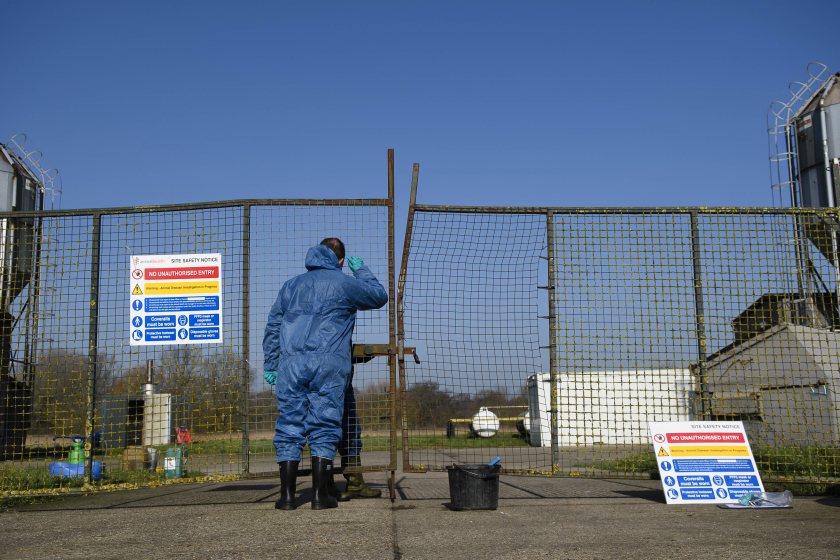Bird flu: Chief vet says urgent action needed or risk losing flocks

The UK’s chief veterinary officer has urged poultry keepers not to be complacent and to undertake the urgent biosecurity measures needed to help stop the spread of bird flu.
The stark warning comes as the UK faces its largest ever outbreak of bird flu, with over 60 cases confirmed across the country since the start of November.
The UK's chief veterinary officer, Christine Middlemiss warned today that poultry keepers and farmers risked losing their flocks to the disease if they did not take action.
She said that whilst the main source of infection came from migratory wild birds, those failing to implement measures risked infecting their own flocks by walking the virus into their holdings.
"We are seeing a growing number of bird flu cases both on commercial farms and in backyard birds right across the country," she said on Tuesday (21 December).
"Many poultry keepers have excellent biosecurity standards but the number of cases we are seeing suggests that not enough is being done to keep bird flu out.
"Whether you keep just a few birds or thousands you must take action now to protect your birds from this highly infectious disease."
To help mitigate the spread of disease, mandatory housing measures were introduced last month for chickens, ducks geese and any other birds.
Wild birds migrating to the UK from mainland Europe during the winter months and other wildlife spread the disease.
People can also spread the disease on their clothes and shoes. The government says keepers and farm workers should wash their hands and disinfect footwear before going into bird enclosures.
How can I help stop the spread of bird flu?
Farmers and poultry keepers have been told by the government to do the following:
• Keep all birds housed inside to keep them separate from wild birds
• Cleanse and disinfect clothing, equipment and vehicles before and after contact with poultry and captive birds
• Where possible change their footwear before entering sheds housing poultry and captive birds
• Reduce the movement of people, vehicles or equipment to and from areas where poultry and captive birds are kept
• Thoroughly cleanse and disinfect housing on a continuous basis
• Keep fresh disinfectant at the right concentration at all farm and poultry housing entry and exit points
• Minimise direct and indirect contact between poultry and captive birds and wild birds, including making sure all feed and water is not accessible to wild birds
• Poultry keepers must be vigilant for any signs of disease in their birds and any wild birds, and seek prompt advice from their vet if they have any concerns








